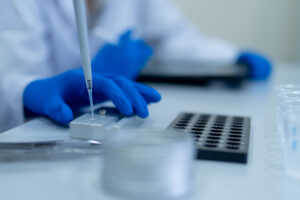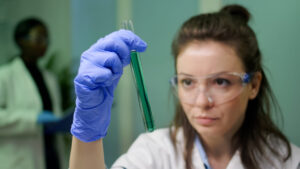Paternity testing is the process by which the DNA of a child, and their alleged biological father, are tested to determine if there is a match between the two.
What is Paternity Testing? How does it work?
Each individual has their unique DNA. However, 50% of this DNA is derived from the birth Mother and 50% from the biological Father. Paternity testing checks the DNA of both the child and the alleged biological father: if there is no match on two or more DNA spikes, then the tested male is not the biological father. If there is a match between all of the DNA probes, then the tested male is the biological father.
What is Paternity Testing: How accurate is it?
- The testing is 100% accurate in determining if a person is not the biological father.
- The testing is 99.5% accurate in determining if a person is the biological father.
- The testing has a very high rate of accuracy.
What is Paternity Testing? Is it painful?
The testing involves taking a sample of bodily fluid: either blood or as is common, a sample from inside of the cheek.
The testing may involve some discomfort but should not cause any lasting pain. Taking a sample for testing should be a quick and simple process. Although it may be more difficult depending on the age of the child and their willingness to cooperate.
At what age can I do it for my child?
A child can be tested at any age. It is also possible to take samples from the umbilical cord blood for paternity testing.
How do I go about arranging a test?
Before undergoing any type of genetic testing we recommend consulting with a genetic counselor to start the important process of genetic counseling, which should start before any genetic tests are arranged. This will help families fully understand what is paternity testing and what are the implications of this testing.
Also because paternity tests may be used as evidence in legal matters or court cases, we recommend speaking with a lawyer before beginning the process.



